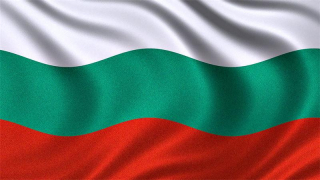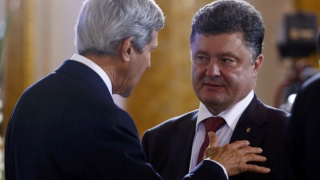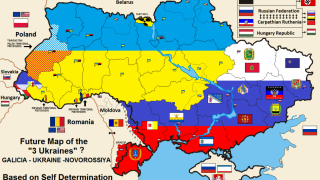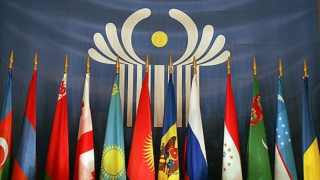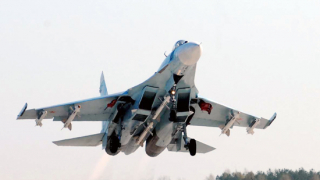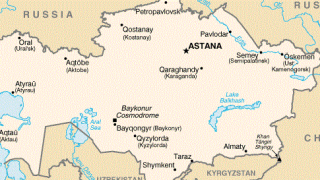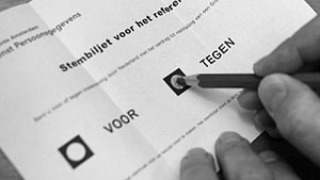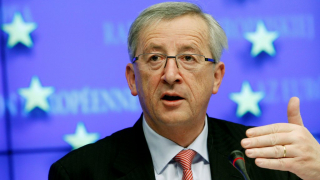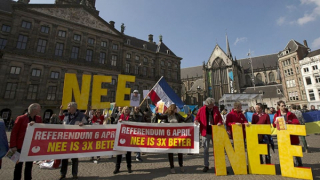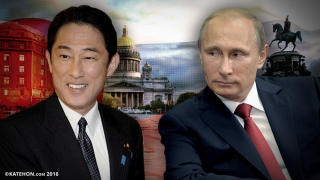Inclusion of “language”: what should we do with the language “Ukraine”?
I wanted to write this article immediately after Darya Dugina's lecture on the “Metaphysics of the Border”, to discuss with her the question of her attitude toward the principle of “taking away the language”: the possibility and necessity of appropriating the Ukrainian language during the Special Military Operation in Ukraine. Darya, in a lecture at the ESM camp, spoke from imperial positions: the Ukrainian language should not be neglected, not excluded, but included in an imperial context. I immediately had a number of thoughts, but we could not discuss the topic in detail. A terrorist act ended Darya's life. However, this issue has recently been discussed again. Therefore, it makes sense to talk about the “mova” [1] and what we “take away” in it.
One cannot simply “take the tongue” thoughtlessly as it is. “Mova” now is not the “southern village language,” not the folk dialect, we are not living in the time of Ivan Kotlyarevsky. For at least a century and a half, “mova” has been an intellectual nationalist construct. In the formulation of its literary norm, one of the basic principles has been the creation of an “idiom” as different as possible from the common Russian language, in order to separate part of the population and territory of the East Slavic (Russian) dialect continuum in a geopolitical project opposed to Russia. Such “language” is accompanied by a corresponding cultural tradition, which cannot be so easily eliminated by appropriation.
That is, criticizing Russian nationalism from, say, Eurasian positions, and at the same time accepting the nationalist construct of the modern “Ukrainian language” and the identity formed around it is not consistency, but a mistake. By swallowing the “mova” “as is” with the textbooks of the Ukrainian language and the entire existing literary tradition, with thousands of texts written in this language and thousands more to be written, we are swallowing Ukrainian nationalism and placing a new bomb under the foundations of the state.
The Russian language, by the way, is not a nationalist construct of the Great Russians, but a product of general imperial creativity. Modern Russian culture and language are largely a product of the tradition of Western Russia, which was noted by N. S. Trubetskoy. Therefore, for Ukraine, it is not an outsider, but also its own. It would seem worthwhile to completely abandon “Ukrainian” and adhere to the all-Russian norm.
Complete rejection of the “Ukrainian” in all its forms seems an easy way out, especially if the goal is to create a Russian nation-state. And it is feasible. The problem is that such language repressions, giving Ukrainian the status of a martyr language, forbidden fruit, will only have the opposite effect. Namely, it will push the process of abandoning Russians to the other side of the front, the moving frontier of the expanding Russian empire will turn into a limes, a static border, and the Ukrainian nationalist project will receive a new impetus.
The only way out may be the deactivation of the “Ukrainian bomb”, which requires the work of journalists, writers, philologists, linguists, historians, culturologists and philosophers. The goal is the deconstruction of the “mova” and everything connected with it. Ukrainian identity, as it was formed in “national circles”, in the context of the culture formed by the nationalists and fixed by the Bolsheviks, for example, the literary canon (authors and works, their selection and interpretation), the literary language itself, which replaced the real folk dialects, were a tool for finding, emphasizing and consolidating differences with the rest of the Russian, East Slavic cultural space with quite understandable political and geopolitical goals. All this work must be opened up, freeing the minds of both Little Russians and Big Russians from nationalist concretions and Soviet clichés.
We also need communication strategies that allow us to combine the desire for diversity and reflection on the richness of the national ethnic base in both Greater Russia and Lesser Russia, and at the same time focus on the creation of a new all-Russian culture understandable to all, the heroic culture of the Bronze Age, coming in flashes of war to replace the Golden Age and Silver Age of Russian culture.
In the context of Ukraine, its mission is to be, as already mentioned, N. S. Trubetskoy noted, a special Ukrainian individualization (Little Russian, Ruthenian) of the all-Russian culture, to express those features of Russian that are less clearly visible in its other individualizations. The three branches of the Russian people are called to complement and develop each other's insights, combining expressive diversity in cultural creativity and the unity of roots, the unity of tradition.
At the very least, it is necessary to abandon the dismissive attitude toward the popular colloquial discourse of the great Russian-little Russian continuum as “surzhyk”, that is, a mixture of “Russian” and some pure “Ukrainian.” You can even sing songs about it, even launch programs, the important thing is to challenge the “norm” and “canon” aimed at dividing the imperial space. There is a folk language, it is alive, but the Ukrainian “literary norm” is a selective and partial a posteriori generalization imposed by state institutions.
Since we are talking about folk language, in the schools of the liberated territories it is worth abandoning the compulsory study of “Ukrainian”, that is, replacing folk language with a nationalist construct. Speech already at home does not need textbooks. Those who want to, study from denationalized textbooks of the little Russian (Ukrainian) dialect with texts by Akim Apachev and Dmitry Vergun. In the same context, popularization of the concepts of “Little Russia” is important. Even the history of Ukraine as a subject is unnecessary, at least until we are right in the territory of Little Russia. So far, the liberated territories-both the Donbass and the Kherson and Zaporozhye regions-are Novorussia, the land of a special Russian destiny, dominated and developed by all three branches of the Russian people and many ethnic groups that found themselves in the orbit of the Russian cultural space.
The use of Ukrainian language in culture without regard to any “norms” could be one of the ways to move away from the nationalist and post-Soviet “canons” of Ukrainian language and culture. Rapprochement, gradual, where justified, of this discourse with the all-Russian (deletion of polonisms, etc., where there are all-Russian equivalents). And vice versa, appropriation of some successful words and phrases from Ukrainian into the general Russian linguistic context could only enrich Russian culture and language.
It is possible and necessary to talk to the other side in their language, referring to images that are meaningful to them, but in the way Akim Apachev does, breaking the mold.
War is also a form of communication with enemies. They want to forget that they are Russian and imperial, but the empire will come to them both through recoding “Ukrainian” images and through their language.
We need the work of linguists and philosophers in the direction of studying the common and primordial proto-philosophical “bases” of the Eastern Slavs, their, in the language of M. Heidegger, “ontic” - through the study of languages, dialects, comparative studies, the study of literary monuments, the continuation of the line of V. V. Ivanov and V. N. Toporov (“Studies in the field of Slavic antiquities: lexical and phraseological problems of text reconstruction”, “Semiotic systems of Slavic language modeling”), V. V. Kolesov (“Ancient Russia: heritage in speech. The human world”), etc. On the basis of this, a completely new, even political “ontology” can be constructed. This is the Heideggerian, immanentist way to unity, turned to the Earth, to the people, to many archaic aspects of existence.
Another way to find a single semantic space that unites Great Russians, Little Russians and Belarusians, without eliminating ethnic identity, can be called vertical or Platonic, in the spirit of Plato's early Parmenides assumptions about the combination of the one and the many. It literally lies in the appeal to Heaven-Orthodoxy, common saints and a single sacred language-Clesiastical Slavonic. If it is not necessary to learn Ukrainian, then Church Slavonic is another matter. Within the framework of a traditionalist utopia, one could propose making Church Slavonic the state language of the new empire. Ultimately, what cannot be spoken about in a language created for the transmission of the Gospel and Christian theology should be silent (with which adherents of technological progress will obviously disagree).
[1] Mova (Мова), 'Language' in Ukrainian. In Russian, the term is understood as 'Ukrainian language'.
Traduzione di Costantino Ceoldo


